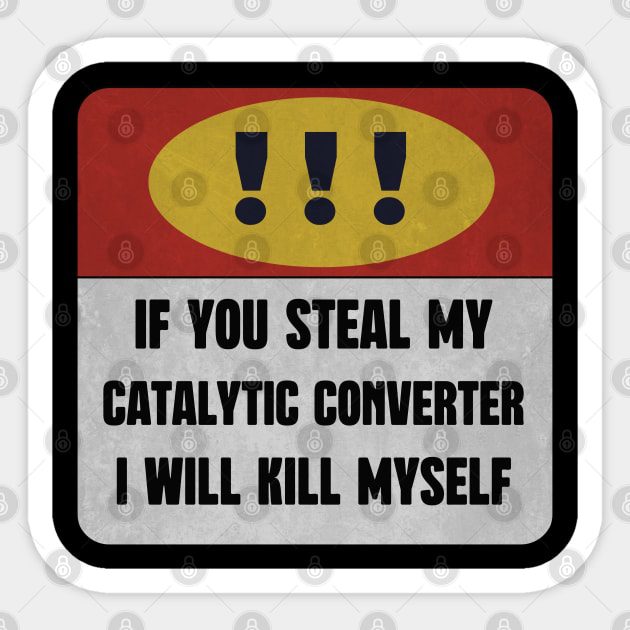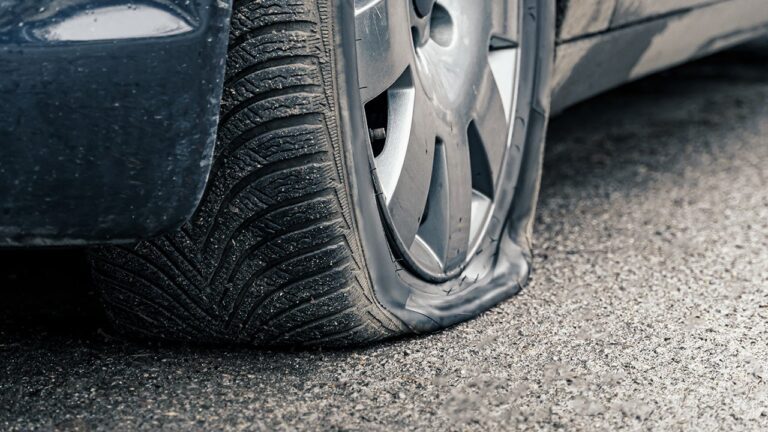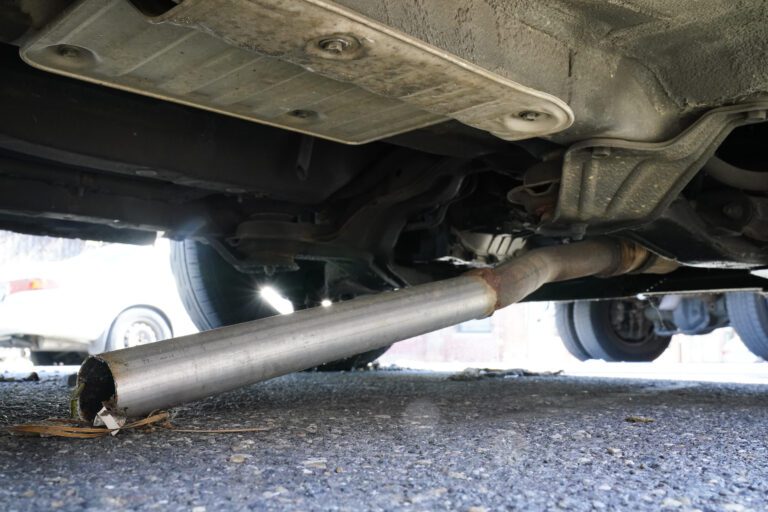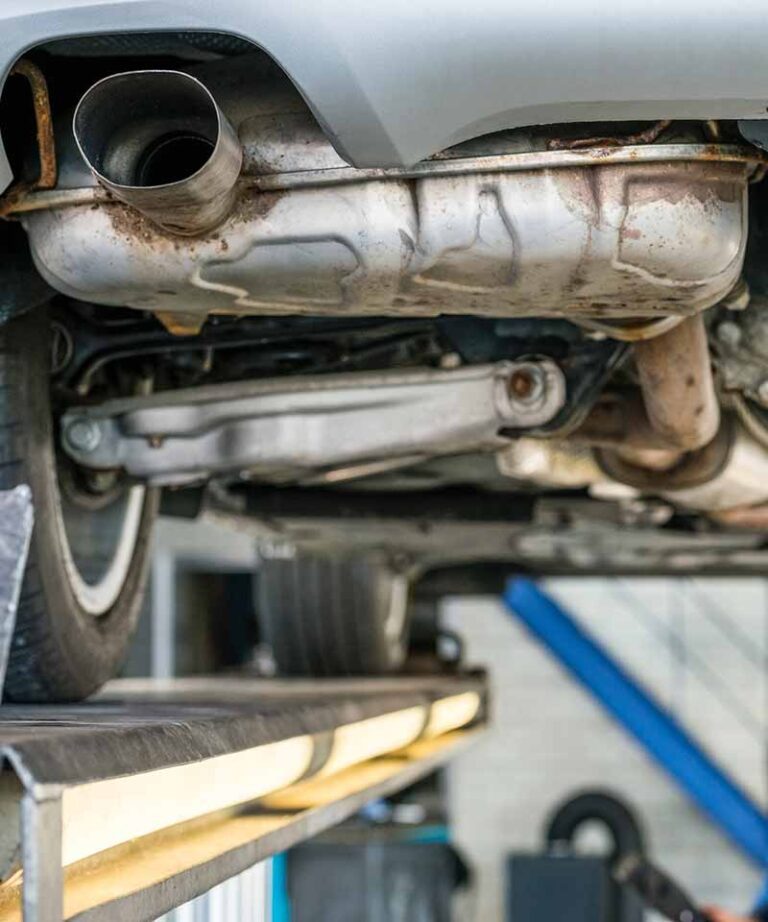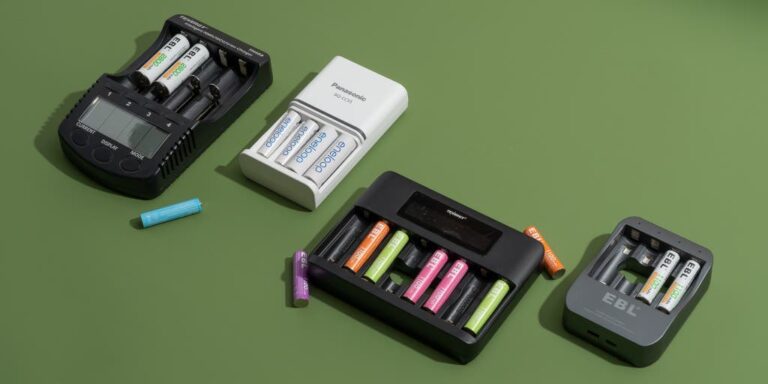Signs You Need a Catalytic Converter: Warning Signals to Watch Out For
If you notice poor fuel efficiency and unusual exhaust smells, it’s a sign you need a catalytic converter. The catalytic converter is a vital component of your vehicle’s exhaust system that helps reduce harmful emissions and protects the environment.
It’s responsible for converting harmful gases into less harmful substances. However, with time, it can become damaged or worn out, resulting in decreased performance and increased emissions. We will discuss some key indicators that can help you determine if your catalytic converter needs to be replaced.
By recognizing these signs early on, you can address the issue promptly and ensure your vehicle runs efficiently while complying with environmental regulations.
Decreased Engine Performance
Decreased engine performance can be a sign that you need a new catalytic converter. If you experience difficulty in starting the engine, it may indicate a malfunctioning converter. The catalytic converter plays a vital role in reducing harmful emissions produced by your vehicle. When it starts to fail, your engine may struggle to ignite, resulting in trouble starting the car. Another indication is sluggish acceleration. A faulty converter can restrict the flow of exhaust gases, causing your vehicle to struggle when accelerating. If your car feels like it’s dragging or lacks power, it’s essential to have your catalytic converter checked. Timely identification and replacement of a failing converter can prevent further damage to your engine and ensure optimal performance.
Unusual Exhaust Emissions
Unusual exhaust emissions can be a clear sign that you need a new catalytic converter. One of the most common indicators is a foul odor emanating from your vehicle’s exhaust. This unpleasant smell may resemble the stench of rotten eggs. Another telltale sign is the presence of dark smoke or sooty exhaust. The sight of dense, black smoke billowing out of your tailpipe indicates that your catalytic converter is not functioning properly. Additionally, if you notice a pungent smell of rotten eggs combined with dark smoke, it is essential to have your catalytic converter checked as soon as possible.
Illuminated Check Engine Light
The check engine light serves as an important indicator of potential issues with various components of your vehicle, including the catalytic converter. When this light appears on your dashboard, it is essential to pay attention to it. Ignoring it may lead to more extensive and costly repairs down the line. The catalytic converter can trigger the check engine light due to a range of problems.
Error Codes Related To The Catalytic Converter
Several diagnostic trouble codes (DTCs) could be associated with a faulty catalytic converter. Common error codes include P0420 (catalyst system efficiency below threshold) and P0430 (catalyst system efficiency below threshold). These codes indicate that the catalytic converter is not functioning correctly and may need attention. However, it is important to note that these error codes alone do not conclusively confirm a catalytic converter failure. They serve as an initial indication that further investigation is required.
If you experience an illuminated check engine light and encounter error codes related to the catalytic converter, it is recommended to consult a qualified mechanic to diagnose the exact cause. Proper diagnosis will help determine if the catalytic converter needs repair or replacement to restore optimal vehicle performance and emissions control.
Louder Or Strange Noises
Louder or Strange Noises
If you hear rattling sounds coming from your exhaust system, it could be a sign that your catalytic converter is failing. The rattling noise is often caused by a loose heat shield or damaged internal components of the catalytic converter. It is important to address this issue promptly as a failing catalytic converter can lead to reduced engine performance and increased emissions.
Aside from rattling sounds, other strange noises such as hissing, clunking, or metallic scraping can also indicate a problem with the catalytic converter. These abnormal sounds may suggest a blockage or a failed catalytic converter that needs immediate attention.
If you notice any of these symptoms, it is crucial to have your vehicle inspected by a professional mechanic to determine if a replacement catalytic converter is needed. Ignoring these signs can lead to further damage to your vehicle and potentially costly repairs.
Overheating Issues
| Signs You Need a Catalytic Converter | |
|---|---|
| In this blog post, we will discuss signs that indicate you may need to replace your catalytic converter. One common issue related to catalytic converters is overheating. Excessive heat under the vehicle can be a sign of a failing catalytic converter. | |
| Overheating Issues | |
| Excessive Heat under the Vehicle | One of the signs that your catalytic converter may need replacement is if you notice excessive heat under your vehicle. When functioning properly, the catalytic converter should not generate excessive heat. However, a clogged or failing converter can result in increased temperatures. If you feel the heat radiating from under your car or notice melted components in that area, it could indicate a problem with the catalytic converter. |
Sudden Drop In Fuel Efficiency
Sudden Drop in Fuel Efficiency:
If you notice a sudden decrease in your vehicle’s fuel efficiency, it may be a sign that you need to check your catalytic converter. The catalytic converter plays a crucial role in reducing harmful emissions by converting them into less harmful gases. When the catalytic converter is not functioning properly, it can lead to an inefficient combustion process, causing the engine to use more fuel. This increase in fuel consumption can result in poor gas mileage and a decrease in the distance your vehicle can travel on a full tank.
Diy Inspection Tips
One of the main indicators that you need a new catalytic converter is physical damage or corrosion. Inspect the exterior of the converter for cracks, dents, or rust. If you notice any of these signs, it is likely that your converter is not functioning properly. Furthermore, checking for blockages or clogging is crucial in determining its condition. Start by locating the oxygen sensor before and after the catalytic converter. Remove them carefully and shine a flashlight into the converter. Look for excessive soot or debris that could indicate a clog. A blocked converter will restrict the exhaust flow and diminish the vehicle’s performance. If you notice any of these issues, it is advisable to have your catalytic converter replaced as soon as possible. Regular inspection and maintenance can help prevent severe damage and ensure your vehicle operates efficiently.
Professional Diagnostic Tests
A professional diagnostic test is essential to determine if your vehicle’s catalytic converter needs attention. One common diagnostic test is the OBD-II scan for error codes. This scan checks the vehicle’s onboard computer system and retrieves any error codes related to the catalytic converter or emissions system. Additionally, emission testing can help identify issues with the converter. High emission levels may indicate a problem. By analyzing the results of these tests, a qualified technician can determine if your catalytic converter requires repair or replacement. It is important to address any issues promptly to ensure optimal vehicle performance and reduce harmful emissions.
Regular Maintenance And Servicing
Regular maintenance and servicing of your vehicle plays a crucial role in keeping your catalytic converter in good condition and functioning optimally. Two critical aspects of this maintenance are timely oil and filter changes and the use of high-quality fuel.
Timely oil and filter changes ensure that the engine runs smoothly, reducing the risk of harmful substances building up and potentially damaging the catalytic converter. Regularly changing the oil and filter at recommended intervals, as specified by your vehicle’s manufacturer, can help extend the lifespan of your converter.
In addition to oil and filter changes, the type of fuel you use can impact your catalytic converter’s performance. Using high-quality fuel with the recommended octane rating can prevent the build-up of deposits on the converter, allowing it to work efficiently. Avoiding low-quality or contaminated fuel is essential to protect the longevity and effectiveness of your catalytic converter.
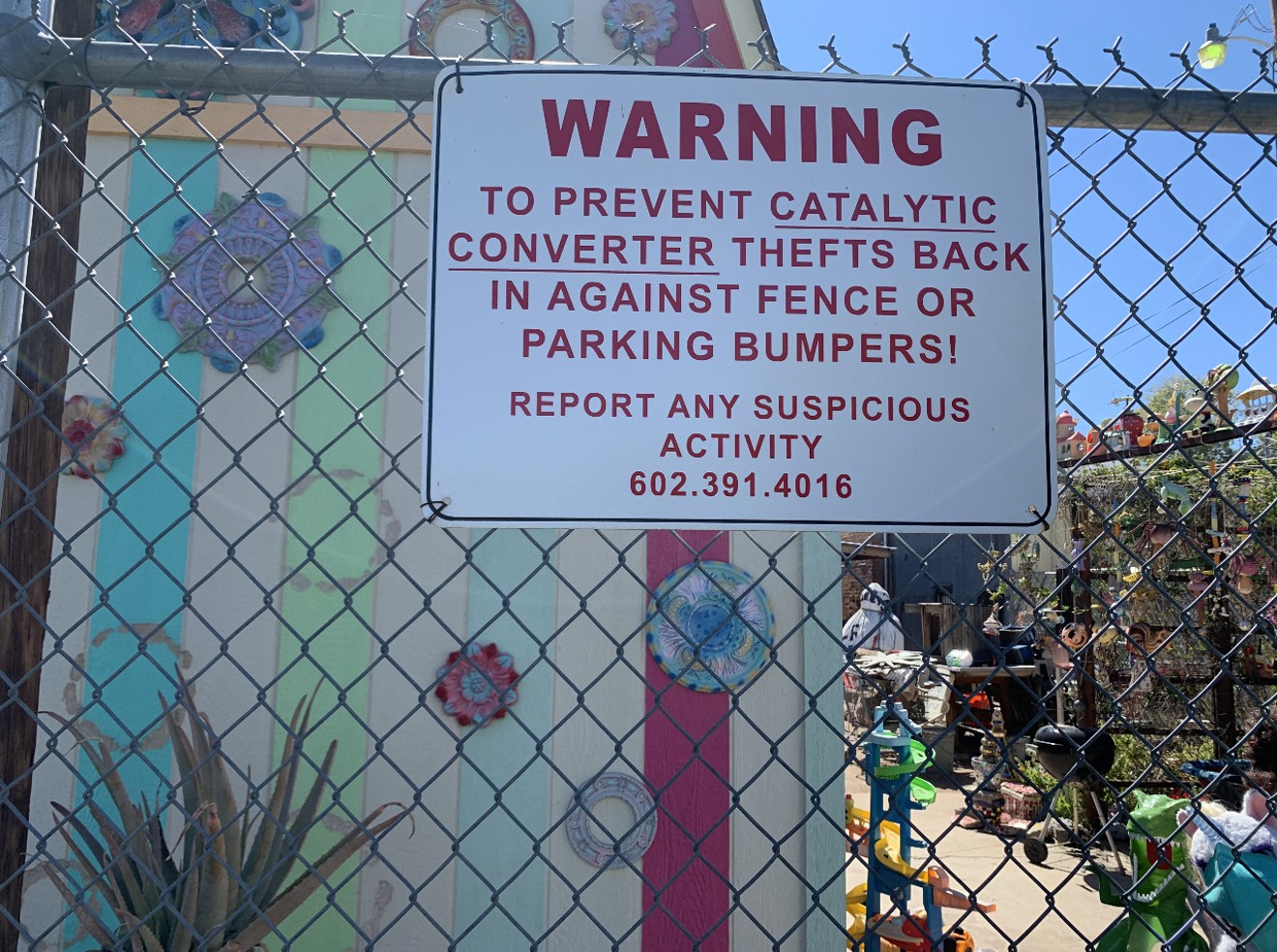
Credit: www.phoenixnewtimes.com
Proper Driving Habits
When it comes to prolonging the life of your catalytic converter, practicing proper driving habits is essential. Avoiding aggressive driving is one such habit that can make a significant difference. Quick accelerations, abrupt stops, and excessive speeding put unnecessary strain on the catalytic converter, leading to premature wear and potential damage. By driving calmly and responsibly, you can help maintain the integrity of this critical emission control device.
Another important aspect is not ignoring engine warning signs. Your vehicle’s onboard diagnostic system is equipped to detect potential issues and will illuminate the check engine light if it detects a problem with the catalytic converter. Ignoring this warning sign can lead to more extensive damage and costly repairs. It is crucial to address any check engine light promptly and have your vehicle inspected by a qualified mechanic to diagnose and rectify the underlying problem.
Protection Against External Factors
Your catalytic converter plays a crucial role in reducing harmful emissions from your vehicle. To ensure its optimal performance and longevity, it is important to protect it against external factors. One way to shield the converter from road debris is by installing a protective cover or shield. This will help prevent rocks, dirt, and other debris from damaging the converter. Additionally, excessive moisture can also be detrimental to the converter’s functioning. To keep it away from moisture, make sure to inspect your vehicle for any leaks and repair them promptly. Furthermore, you can avoid driving through deep puddles or flooded areas. Taking these precautions will help maintain the integrity of your catalytic converter and extend its lifespan.
Frequently Asked Questions For Signs You Need A Catalytic Converter
What Happens When A Catalytic Converter Goes Bad?
A bad catalytic converter can lead to decreased fuel efficiency, engine performance issues, and increased harmful emissions.
What Are The Symptoms Of A Bad Catalytic Converter?
Symptoms of a bad catalytic converter include sluggish engine performance, reduced fuel efficiency, and a sulfur-like odor. Other signs may include increased exhaust emissions, rattling noises, and illuminated check engine light.
Can A Car Run With A Bad Catalytic Converter?
A car can still run with a bad catalytic converter, but it can cause engine issues and failure to pass emissions tests. It’s best to fix or replace the catalytic converter for optimal performance.
What Will Happen If I Dont Replace My Catalytic Converter?
Not replacing your catalytic converter can result in decreased fuel efficiency, reduced engine performance, and increased emissions. It may also lead to potential damage to other parts of your vehicle’s exhaust system. Thus, replacing the catalytic converter is crucial for maintaining the proper functioning of your vehicle and ensuring compliance with emission standards.
Conclusion
To sum up, recognizing the signs of a failing catalytic converter is crucial for maintaining your vehicle’s performance and reducing harmful emissions. Whether it’s decreased fuel efficiency, strange smells, or warning lights, addressing these signs promptly can prevent further damage and costly repairs.
Remember, regular maintenance and inspections can improve the longevity of your catalytic converter and keep your car running smoothly. Stay vigilant and prioritize your vehicle’s health for a more efficient and eco-friendly ride.
